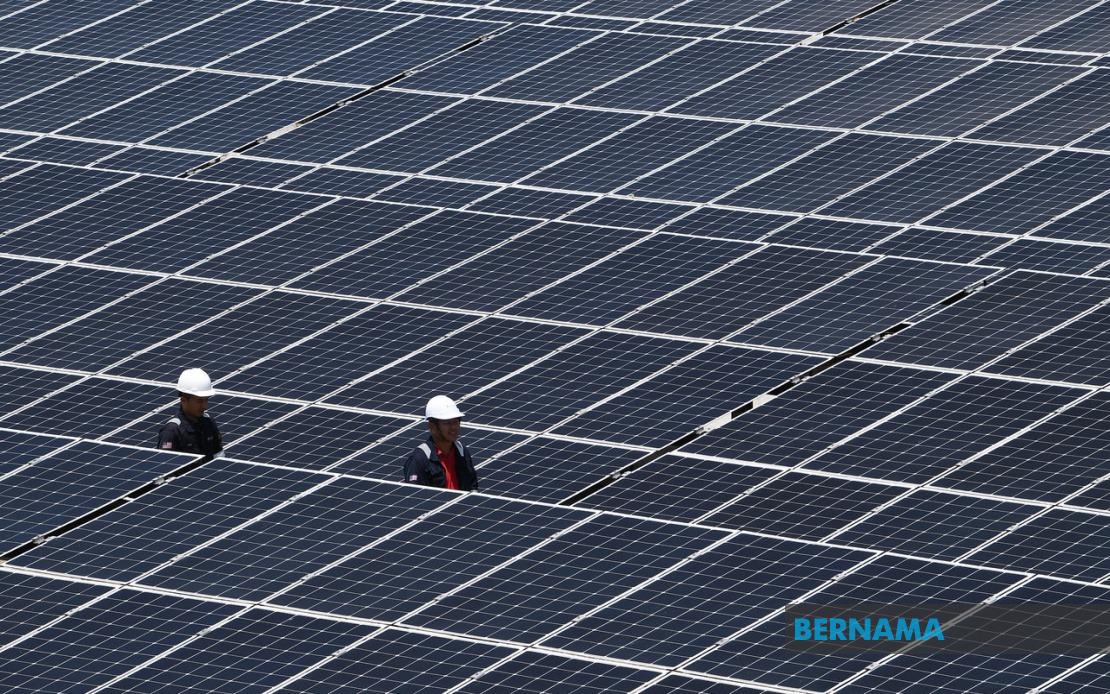News
Government pragmatic in not setting higher targets for renewable energy
By Mikhail Raj Abdullah
KUALA LUMPUR, April 8 -- Malaysia should not be pressured into setting higher targets under its renewable energy (RE) policy.
After all, one of the priorities for any policy is to ensure that it would not be a financial burden for the people.
This being the case, the government’s call for industry players not to urge for too high a target for RE is totally justified.
The government has set a 31 per cent RE target by 2025 and 40 per cent in 2035. Consequently, carbon emissions from fossil fuels are expected to reduce by 45 per cent in 2025 and 60 per cent in 2035.
However, some quarters are urging for higher RE targets, simply because the cost of generating electricity from solar power is much lower compared to fossil fuels.
There are also calls to increase the quota for industry players to engage in solar energy.
It is understood that the solar tariffs have dropped to 18.46 sen/kilowatt hour from 45.43 sen/kilowatt hour in 2017.
But the cost of electricity supply to consumers is not solely determined by the cost of generation, as it also requires balancing the three elements contained in the energy trilemma -- affordability and access, energy security and environmental sustainability.
Solar power currently does not meet these three prerequisites as solar farms only produce power only when the sun is shining, which means there is variability or uncertainty in the supply of solar energy.
This can be disastrous for the commercial and industrial sectors if they depend on solar energy, as these sectors consume about 80 per cent of the country’s electricity supply.
We must pursue a cautious approach in embracing solar power as RE. In contrast, electricity grids are more dependable as they are designed to address variability in customers’ electricity demand.
Hence, there is a need to have a continuous balance between generation and demand, and maintaining reserves.
Any substantial increase in the use of electricity generated from solar energy warrants a consolidation of power grids.
This will contribute to increased electricity supply costs which will be fully borne by consumers, including those who do not have solar energy systems.
The intermittent nature of solar power means we will only have solar energy for 4-5 hours a day -- weather permitting.
Owing to this inconsistency, power generation from alternative sources is necessary for the energy grid to accommodate the shortfall.
However, if the volume of solar energy entering the grid increases, it would jeopardise the security of the electricity supply, thus affecting consumers.
As such, measures are needed to enhance grid flexibility through digitalisation and the development of energy storage systems.
All these costs to support solar power in the grid must be considered so as not to burden consumers.
This is especially so for consumers who do not use solar energy as well as those who incur costs when installing solar panels on the roof of their houses..
In order to balance the energy trilemma, it is imperative that Malaysia develops RE on its own terms, based on its technical capabilities and not copy targets of advanced economies.
Of equal importance is the people’s affordability in getting access to a sustainable power supply.
Nevertheless, it is encouraging to note the government’s emphasis that the target set would be dynamic. That means reviewing it from time to time, taking into account the latest technological advances, readiness of the country’s electrical supply and the cost of RE integration into the grid.
Cost alone is not enough of a criteria to set RE targets, and the government is being practical and pragmatic in considering the energy trilemma to decide what is best for the people in embracing clean energy.
-- BERNAMA
Other News
Sarawak Lepasi Sasaran Kapasiti Gabungan Tenaga Boleh Baharu Tahun Ini - Abang Johari

Oleh Nur Ashikin Abdul Aziz
SINGAPURA, 21 Okt (Bernama) -- Sarawak mencapai 62 peratus sasaran campuran kapasiti tenaga boleh baharu (TBB) tahun ini, melepasi sasaran 60 peratus yang digariskan dalam Strategi Pembangunan Pasca COVID-19 (PCDS) 2030.
Sarawak Pacu Pertumbuhan Tenaga Boleh Diperbaharui Untuk Manfaat ASEAN - Premier

SINGAPURA, 21 Okt (Bernama) -- Sarawak komited menyokong peralihan tenaga boleh diperbaharui di Asia Tenggara dengan memanfaatkan potensinya sebagai "Bateri ASEAN," yang akan membekalkan tenaga bersih menerusi sambungan Grid Kuasa Borneo dan ASEAN.
Belanjawan 2025 Percepat Peralihan Kepada Tenaga Bersih - Solarvest

KUALA LUMPUR, 19 Okt (Bernama) -- Belanjawan 2025 merupakan satu langkah ke arah mempercepat peralihan kepada tenaga bersih di Malaysia, kata Solarvest Holdings Bhd.
© 2025 BERNAMA. All Rights Reserved.
Disclaimer | Privacy Policy | Security Policy This material may not be published, broadcast,
rewritten or redistributed in any form except with the prior written permission of BERNAMA.
Contact us :
General [ +603-2693 9933, helpdesk@bernama.com ]
Product/Service Enquiries [ +603-2050 4466, digitalsales@bernama.com ]
